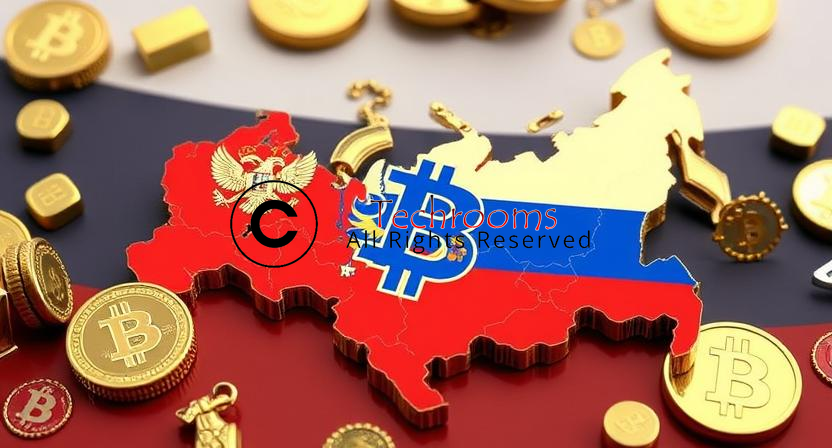Amid increasing sanctions from Western nations, Russia has started utilizing cryptocurrencies to facilitate its oil transactions with China and India. This strategy enables the country to circumvent financial restrictions that have impacted its economy.
While the Russian government has publicly endorsed the use of digital currencies for international trade, the specific application of these currencies in oil exports has been somewhat concealed until now. The legalization of cryptocurrency payments for cross-border transactions was enacted last summer, further empowering this trend.
The Rising Role of Cryptocurrencies in Russian Oil Trade
Sources acquainted with the situation have disclosed that several Russian oil firms are employing cryptocurrencies, including Bitcoin (BTC), Ethereum (ETH), and stablecoins like Tether (USDT), to streamline the exchange of currencies, particularly between the Chinese yuan, Indian rupee, and Russian rouble.
Even though these crypto transactions represent a relatively small portion of Russia's massive $192 billion oil sector, their use is on the rise as a method to reduce dependence on the U.S. dollar, which is pervasive in global energy markets. All sources opted for anonymity due to the sensitive nature of the matter.
The tendency for sanctioned nations like Iran and Venezuela to adopt cryptocurrencies for trade has caught on in Russia as well. These countries have historically relied on digital assets to maintain trading channels without the interference of dollar-denominated financial sanctions.
Following renewed U.S. sanctions, Venezuela notably escalated its use of cryptocurrencies for exporting crude oil and fuel.
How Crypto Transactions Work in Russian Oil Trade
Insiders explained a structured approach to using cryptocurrencies in the oil industry: a Chinese buyer initiates the process by depositing yuan into an offshore account managed by an intermediary. This intermediary subsequently converts the yuan into cryptocurrency. The digital assets are then transferred to another account before being sent to a Russian entity, where they are exchanged for roubles to finalize the transaction.
This method offers a swift and effective alternative to conventional banking channels, which have become more restricted due to financial sanctions. One source familiar with the oil trading sector indicated that some cryptocurrency-based transactions involve tens of millions of dollars each month.
Despite the growing incorporation of digital currencies, traditional fiat currencies still account for the majority of Russian oil transactions. Analysts have noted a broader strategy involving the use of alternative currencies, such as the UAE dirham, to further evade financial constraints.
Regulatory Concerns Surrounding Crypto in Russia
Regulatory bodies have begun to take notice of the rising use of cryptocurrencies. The central bank of Russia has not yet addressed these developments publicly, though it has previously acknowledged the complications presented by delays in payments stemming from sanctions, which weigh heavily on the nation's economy.
In light of increasing financial scrutiny, the U.S. and European Union have stepped up their efforts to suppress Russia's crypto activities. In 2022, the U.S. imposed sanctions on the Russian exchange Garantex, which was followed by similar actions from the EU in February. Tether subsequently blocked wallets linked to Garantex, leading to the suspension of the platform's operations last week.
Future Prospects of Crypto in Russian Oil Trade
While the political landscape may shift, with former U.S. President Donald Trump expressing interest in rekindling relations with Russia to help end the war in Ukraine, the fate of economic sanctions remains uncertain. While reports have suggested that the White House is contemplating options to ease sanctions, Trump indicated on March 7 that he is seriously considering additional financial restrictions against Russia.
Regardless of potential policy changes, insiders believe that cryptocurrencies will likely continue to play a pivotal role in Russian oil transactions. The speed, confidentiality, and efficiency associated with digital transactions make them an appealing long-term solution for maneuvering around financial barriers.




